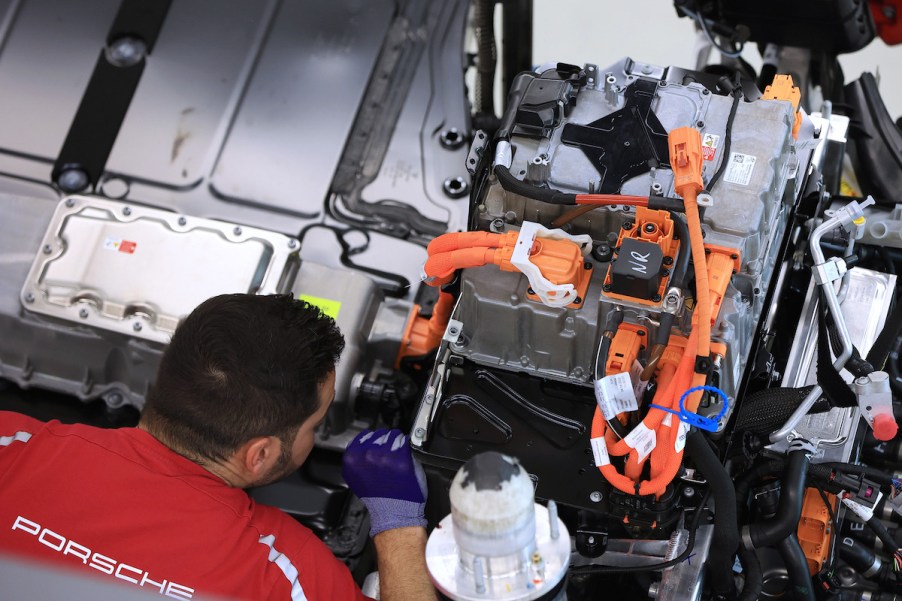
How Much Does It Cost to Replace a Battery in an Electric Vehicle (EV) That’s Not Under Warranty?
Owning an EV is somewhat similar to owning a gas-powered car, but there are some significant differences. EVs have some unique maintenance needs as a result of those differences that new EV owners will have to grow familiar with. One of the big new maintenance needs an EV has is related to its battery, and here’s a look at how much it’ll cost to replace an EV’s battery if it’s not under warranty.
This is how much an EV’s battery can cost if it’s not under warranty

According to GreenCars, the cost of an EV battery replacement will vary depending on the particular EV that needs its battery replaced. This is because the bigger and more powerful a battery is, the more expensive it will be compared to smaller and weaker ones.
For example, Tesla’s batteries tend to have over 100kWh capacity but can cost upwards of $20,000 to replace without a warranty. On the other hand, the Nissan Leaf has a much lower capacity as a smaller battery, which costs significantly less, hovering around $6,200 to replace without a warranty.
Overall, the average cost to replace a battery is currently at about $137 per kWh. This number is based on market conditions, and batteries are expected to get cheaper soon.
Labor costs will matter too, and replacing an EV’s battery can be expensive overall
While the cost of the battery itself is the main factor, another significant factor is labor. An EV battery is very different from a gas-powered car battery. As such, even if an EV owner has a replacement battery, it’s doubtful they’ll be able to perform the swap themselves. EV owners will have to leave that job to the pros, which will cost money.
But again, the labor costs for replacing an EV battery will vary greatly. On average, EV owners should expect to pay around $2,300 for labor. The replacement process won’t take too long, as it can be completed in about a day. Overall, the cost of the battery and labor is a significant expense, and folks could pay thousands of dollars if their EV isn’t under warranty.
Here’s how long EV batteries last and what an EV’s warranty typically covers
The good news is that automakers are well-aware of this potential issue that customers will face. That’s why many automakers offer EV warranties that cover the cost of replacing the battery up to a point. Like with any other warranty, the terms will vary. Some automakers will cover the EV’s battery for up to five years or 60,000 miles, while others will cover up to 10 years and 100,000 miles.
Unlike an engine, batteries are different in that they will degrade over time. After a lot of use, batteries can hold less charge, but some automakers are aware of that. Some manufacturers will replace your EV’s battery once its max charge hits a certain percentage point. For example, Tesla does this when the battery is at 70% of its max charge.
That said, EV batteries can last anywhere from 10 to 20 years. This means that it’s possible to drive an EV past its warranty. This isn’t a good idea, as it will mean that EV owners will have to eat the cost of replacing the battery themselves or buy a new car.


